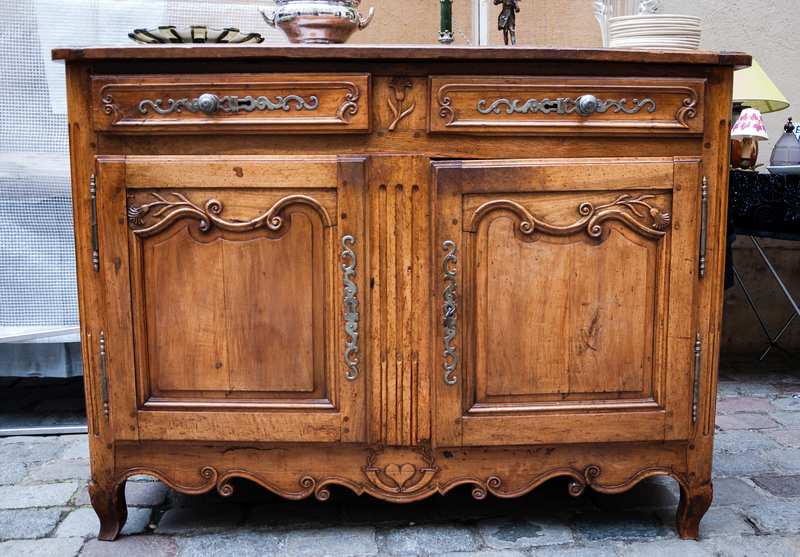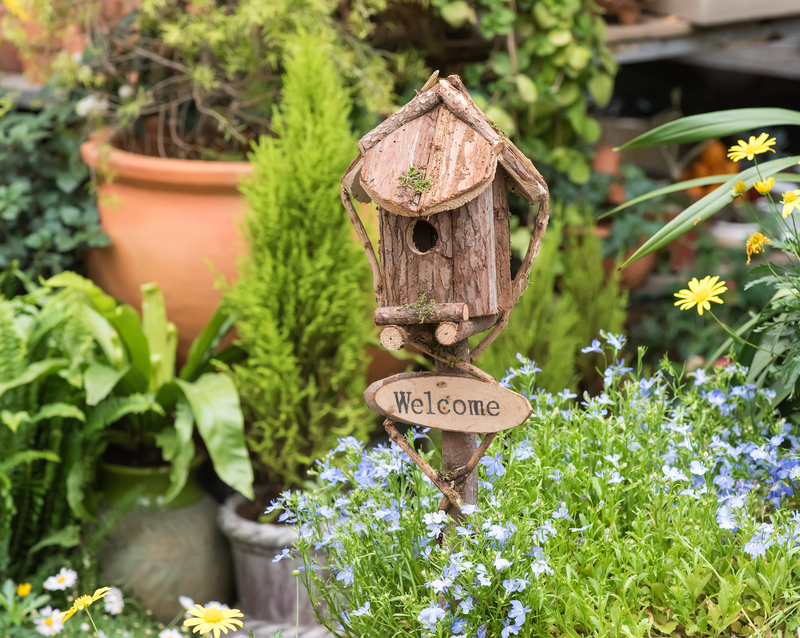Efficient Clutter Removal and Hoarder Clean Up to Reclaim Your Home
Is your home feeling overwhelmed by clutter? Are you or a loved one struggling with hoarding tendencies? Efficiently reclaiming your living space is not only possible, but also profoundly life-changing. In this in-depth guide, we break down actionable steps, expert advice, and practical tips on efficient clutter removal and thorough hoarder clean up, ensuring a safer, healthier, and more welcoming home environment.
Understanding Clutter and Hoarding: What's the Difference?
Clutter and hoarding are terms often used interchangeably, but they refer to two distinctly different situations within the home.
- Clutter refers to a collection of items that may be disorganized or excessive but can typically be managed with regular tidying and organization.
- Hoarding is a recognized mental health disorder involving the persistent difficulty in parting with or discarding possessions, regardless of their actual value. This leads to severed functional spaces, potential health and safety hazards, and emotional distress.
Efficient clutter removal is about organizing and reducing items for a tidier space, while hoarder clean up often requires a more sensitive, structured, and comprehensive approach.

The Psychological Impact of Clutter and Hoarding
Clutter and hoarding aren't just physical issues--they deeply affect emotional wellbeing.
- Increased stress and anxiety: Messy or overstuffed spaces can be overwhelming, leading to feelings of stress and even depression.
- Social isolation: Many people avoid inviting guests or even scheduling necessary home repairs due to embarrassment.
- Health and safety risks: Hoarding can lead to tripping hazards, fire risks, poor sanitation, pest infestations, and compromised air quality in the home.
Decluttering your home and cleaning up hoarded areas not only restores order but can also rejuvenate your mind, relationships, and physical wellbeing.
Step-by-Step Guide: Efficient Clutter Removal
1. Set Realistic Goals
Don't aim to declutter your entire home in a single day. Break down tasks room by room or even item by item and establish achievable milestones. Celebrate your progress as you go.
2. Gather Necessary Supplies
- Trash bags for immediate disposal
- Sorting bins or boxes labeled "Keep," "Donate," "Sell," and "Recycle"
- Cleaning supplies for wiping down empty spaces
3. The Sorting System
Systematically sort your belongings into four main piles:
- Keep: Items you use regularly or that bring significant joy
- Donate: Gently used, useful items you no longer need
- Sell: Valuable goods in good condition
- Discard: Damaged, broken, or expired items
Stay committed to these categories to streamline the clutter removal process.
4. Schedule Removal
- Arrange pick-ups from local charities for donations
- Organize a garage sale or list items online for selling
- Contact waste disposal services for large amounts of trash or recyclables
5. Clean as You Go
Deep clean surfaces as you clear spaces--vacuum carpets, wipe shelves, and sanitize counters for a fresh, welcoming atmosphere.
6. Maintain the Momentum
- Establish weekly or monthly decluttering routines
- Regularly review and pare down possessions
- Encourage family participation to keep areas organized
The Challenges and Solutions for Hoarder Clean Up
1. Approach With Compassion
Hoarder clean up is emotionally charged. Approach friends or loved ones dealing with hoarding with empathy, patience, and understanding, never judgment.
2. Safety First
- Wear protective gear: Gloves, masks, and sturdy footwear are important, as hoarded environments can harbor mold, animal droppings, sharp objects, or toxins.
- If needed, consult certified biohazard or hoarder clean up services for extremely hazardous cases.
3. Seek Professional Help
Therapists or mental health counselors can support underlying psychological factors contributing to hoarding behavior. Involving professionals can make the process less traumatic and more successful.
4. Gradual Progress Over Perfection
For lasting results, spread hoarder cleaning sessions over days or weeks. Move through one area at a time and set boundaries around what items can be kept, donated, or discarded.
5. Implement Support Systems
- Enlist supportive friends or family to help with the process
- Consider local support groups for people with hoarding disorder
- Maintain open, judgment-free lines of communication
Key Tips for Efficient Clutter Removal and Hoarder Clean Up
- Start small: Focusing on a single drawer, shelf, or corner prevents overwhelm.
- Be decisive: Hesitation leads to procrastination. If you haven't used it in a year, let it go.
- Use vertical storage: Shelving and hooks free up floor space and keep items organized.
- Label everything: Labels make it easy to find and return items, reducing future clutter buildup.
- Contain similarity: Group similar items together for easy access and organizational flow.
Preparing for a Hoarder House Clean Up: A Comprehensive Checklist
- Assessment: Walk through the property and take an inventory of problem areas.
- Photos: Before-and-after photos help track progress and celebrate achievements.
- Plan your approach: Decide which rooms to tackle first and identify any potential safety risks.
- Time management: Allot specific time slots for each section to maintain focus and motivation.
- Secure valuables and documents: Set aside important papers, jewelry, or heirlooms before beginning disposal.
- Contact professionals: For severe hoarding, consider engaging a professional hoarder clean up service.
Sustaining a Clutter-Free Home
Adopt the One-In, One-Out Rule
For every new item entering your home, let go of one old item. This practice curbs future buildup and encourages mindful consumption.
Design Organized Storage Zones
- Assign specific places for keys, mail, shoes, cleaning supplies, and paperwork
- Use clear bins, organizers, and shelving to keep everything visible and accessible
- Regularly revisit storage zones to adjust for changing needs
Develop Daily and Weekly Routines
- Daily: Tidy up surfaces, return items to their designated spots, and take out trash or recycling as needed
- Weekly: Conduct quick decluttering sweeps--go through mail, laundry, and kitchen drawers to keep chaos at bay
Professional Clutter Removal and Hoarder Clean Up Services
For those facing time constraints or dealing with complex cases, professional clutter removal services and expert hoarder cleaning companies offer a lifeline. Specialized teams are equipped to:
- Assess and plan: They develop custom strategies for each unique home and individual circumstances.
- Provide muscle and equipment: Pros bring manpower, vehicles, safety gear, and cleaning tools needed for efficient clutter removal tasks.
- Handle hazardous materials: Certified firms safely remove biohazards, pests, mold, and other dangerous materials, restoring your home's safety.
- Respect privacy and emotions: Trained cleaners offer compassion and confidentiality during sensitive clean up sessions.
If you're feeling overwhelmed, hiring a specialist hoarder clean up team can make reclaiming your home faster, easier, and less stressful.
Resources and Support for Clutter and Hoarding Issues
- Therapists and counselors: Seek professionals specializing in hoarding disorder or chronic disorganization.
- Support groups: Organizations such as Clutterers Anonymous and The Hoarding Project offer understanding, resources, and moral support.
- Books and guides: Explore evidence-based books like "Buried in Treasures" for practical decluttering advice.
- Online communities: Join forums and Facebook groups for ongoing encouragement and accountability.

Frequently Asked Questions About Clutter Removal and Hoarder Clean Up
How do I talk to a loved one about their hoarding?
Use empathy and compassion. Avoid judgment or ultimatums. Instead, focus on safety and health concerns, and ask how you can help support their efforts to declutter.
How long does a hoarder clean up take?
Timeframes vary greatly depending on the level of clutter, size of the home, and whether professionals are involved. Some cleanups take days, others may stretch over weeks or even months for severe hoarding cases.
What should I do with sentimental items?
Designate a memory box or showcase select treasures in your everyday living space. Photograph or digitally archive items that are hard to keep but too precious to forget.
Can decluttering improve my health?
Absolutely! Many studies have shown that reduced clutter lowers stress, boosts mood, lessens allergy triggers, and improves sleep quality.
Conclusion: Take Action to Reclaim Your Home
Whether you're battling mild disorganization or severe hoarding, efficient clutter removal and hoarder clean up offer a clear path to a healthier, happier home. With the strategies, practical tips, and resources shared here, you can take back control of your space and life. Begin with small steps, seek support when needed, and remember: every item removed is a step closer to reclaiming your home's peace and functionality.
Ready to begin your journey? Start today, and let your new, clutter-free home inspire fresh possibilities!
